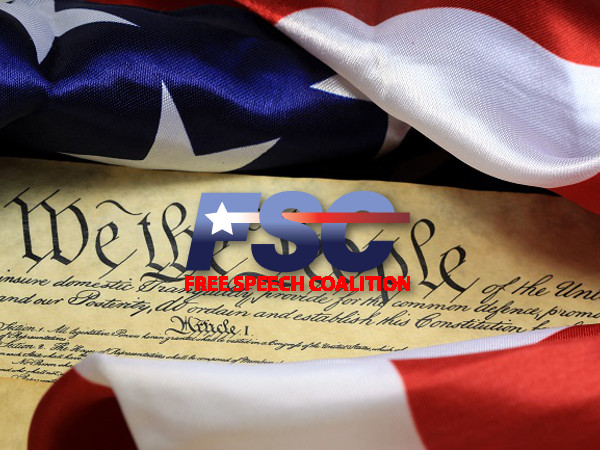 CHATSWORTH, Calif. – As the 2016 presidential election looms ever nearer on the horizon, trade association Free Speech Coalition warns adult entertainment industry members the battle over 18 U.S.C. §2257 may be more important than ever.
CHATSWORTH, Calif. – As the 2016 presidential election looms ever nearer on the horizon, trade association Free Speech Coalition warns adult entertainment industry members the battle over 18 U.S.C. §2257 may be more important than ever.
Known more commonly in the adult industry as “2257,” the code and the regulations that support it compose a federal record-keeping law aimed at preventing the use of minors in adult productions. In a nutshell, 2257 requires anyone who films sexually explicit material to create and maintain detailed records about the individuals who performed in the film, including photo identification, address, real name and any aliases, and other identifying information. All identification documentation, plus certain information about the film, must be filed along with a copy of the film which it all relates, and the address of the custodian of the records must be displayed on the finished product in an obvious way.
In addition to the producer, anyone who incorporates imagery from the production — for example, by posting a video clip or still image on a website or using an image from the film on a box cover or in marketing materials — must maintain a copy of the producer’s records.
“It doesn’t matter if the person depicted is a 60-year-old grandfather who has made scores of movies with the producer or even is the producer’s wife,” a statement on the FSC’s website notes.
“Like most legislation aimed at the adult industry, [2257] does very little to protect minors, while offering law enforcement numerous ways to harass adult producers,” the statement adds.
For the past six years, FSC has engaged in a succession of federal court battles challenging 2257’s constitutionality. The organization currently awaits a ruling from the United States Court of Appeals for the Third Circuit.
This [law] isn’t about keeping minors out of adult film,” the FSC’s statement notes. “The industry is already incredibly stringent about age-verification, as the production of child pornography is not only morally and ethically despicable, it also carries a mandatory minimum of 15 years in prison.
“A record-keeping requirement means nothing to a child pornographer,” the statement continues. “But for legitimate producers, the burdensome and byzantine requirements create numerous ways for producers to be prosecuted and harassed by law enforcement…”
If a 2257 form is incomplete or misfiled, or the custodian of records isn’t available during required inspection hours, the regulations allow for federal prosecution. Conviction carries a prison term of up to five years. The severe consequences have FSC and its members worried for a number of reasons.
“2257 allows the FBI the ability to arrive at your place of business without a warrant and demand access to your records at almost any time,” the organization’s statement notes. “The producer has no choice but to let the agents into their studio, office, or home, and to allow them to sift through the personal information contained in the records for hours. In one case, the FBI visited a producer over two dozen times.”
The law and its regulations seldom have been enforced, but FSC warns the government’s seeming lack of interest in 2257 could change with a change in federal administration.
“The FSC is here to fight back against nonsensical laws and regulations, to prevent government overreach, and protect performer privacy,” the statement notes.
For more information about and analysis of 2257 regulations, including record-keeping requirements, the status of FSC’s legal endeavors, and how to prepare for and respond to inspections, contact info@freespeechcoalition.com.












